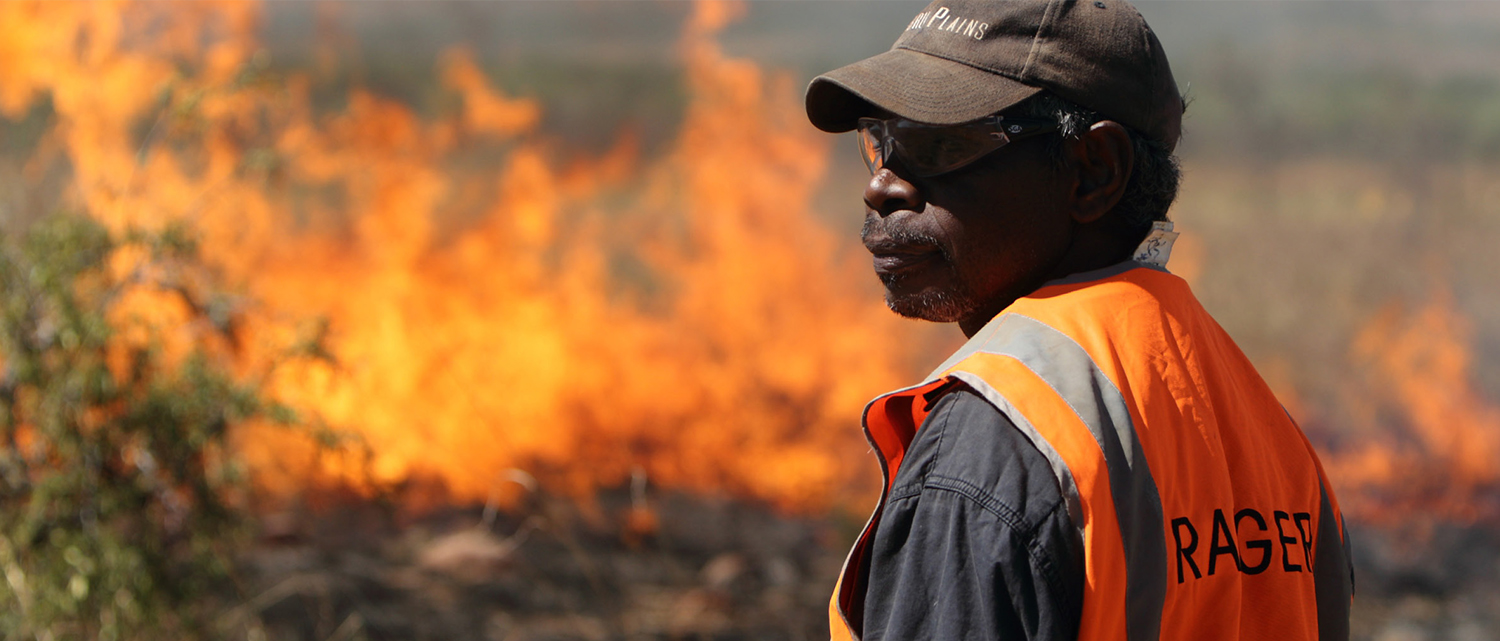
Australia’s bushfires are a devastating consequence of a combination of environmental and social injustices, decades in the making. For Aboriginal people, the fires are burning not only through their land, but also through their identity.
Bushfires have always been a natural component of some ecosystems within Australia. But the risk factors, amplified by climate change, have increased beyond anything previously experienced.
The ongoing drought and high temperatures have resulted in an abundance of dry, ignitable fuel. The fire season is being observed earlier in the year and leaves less time to recover in the cool season. It is not coincidental that this is happening in a country with a colonial legacy of eradication, dispossession, assimilation and racism which has oppressed its Aboriginal people. In addition to the indigenous land and fire management practices being constrained, this both adds fuel to these unprecedented fires and amplifies the trauma caused by them.
In his environmental encyclical Laudato Si’, Pope Francis recognises that for indigenous communities, ‘land is not a commodity but rather a gift from God and from their ancestors who rest there, a sacred space with which they need to interact if they are to maintain their identity and values’ (LS 146). It is this respect for land that has empowered such communities to care for it best. Indigenous land management techniques, holistically ‘keep’ and ‘till’ the land, providing abundant food while reducing devastating bushfires, protecting water resources and wildlife.
Since the start of the fire season 10 million hectares of land has been destroyed, at least 27 lives have been claimed, an estimated 1 billion animals are feared to have been killed and thousands of people have been evacuated from homes. The wider health impacts from dangerous air quality are yet to be estimated.
For everyone affected this is truly horrific. But for Aboriginal people these fires bring a ‘particular grief’ because of their profound spiritual connection to land, where nature forms an integral part of their culture and identity. The loss of sacred land to fire is therefore losing an important part of themselves.
The current environmental crisis is not their first experience of cultural disenfranchisement. Dispossession of land during colonial times remains an open wound. Their plight is an example of how climate change can compound social injustices which are already being endured.
Laudato Si’ states that “the human environment and the natural environment deteriorate together, we cannot adequately combat environmental degradation unless we attend to the cause relating to human and social degradation” (LS 48).
Responding to climate change and its manifestations will require viewing nature through an integral ecology lens. Understanding the consequences of our interactions with nature and treading more carefully is a lesson we need to learn. To do this requires not only the latest scientific information but also indigenous knowledge. The catalyst must be our acknowledgement and respect for cultures, and cultural and spiritual practices.

